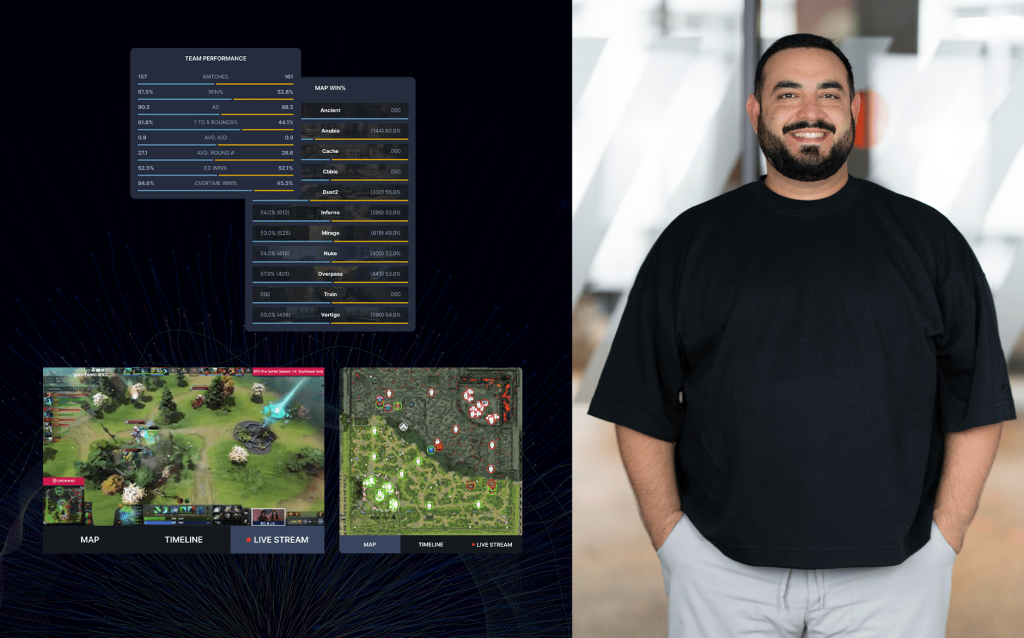Amir Mirzaee, Managing Director and CEO at Bayes Esports writes for Esports Insider to discuss how integrity and data management are essential to developing a sustainable esports infrastructure.

Integrity in any traditional sport — such as match-fixing — has historically been an important topic. Integrity in esports is no different, especially due to the vast amount of data and characteristics that each game provides. Esports pose unique challenges because, unlike traditional sports, fans only get to see what the ‘in-game’ cameras (spectator client) show, which consequently hides the actions of some players if the focus isn’t directed towards them. This raises the question of how the standard for using said match data can affect the integrity of esports.
Data integrity can be compromised in two ways. Firstly, data can have an impact on matches if not managed and distributed responsibly.
Due to the large volume of businesses receiving data, it’s important that digital use cases surrounding esports don’t jeopardise the outcome of the game or give teams an advantage. To combat this, typically integrity delays are enforced in match broadcasts to ensure that no team gains an unfair advantage.
Secondly, match data can have a significant impact on products within these digital use cases, influencing accuracy, reliability and credibility. This, in particular, is a crucial consideration for third-party companies such as data platforms like Bayes or sportsbooks. If the data is incorrect within fantasy game stats, or an online scoreboard, it impacts how the esports community engages with tournaments, stunting the ecosystem’s reputation and future growth.
The esports industry’s growth requires key businesses at its heart to treat data that powers the ecosystem with the respect it deserves. To build a commercially sustainable infrastructure for esports, it’s important that the integrity of data is protected to boost fan engagement and build fair practices within the industry.
The Impact Data Integrity Has on the Industry’s Growth
Official data that comes directly from the game’s servers is fully licensed, reliable and accurate. So simply put, high-quality data equals high-quality products. Businesses spanning many digital use cases understand its impact, but how does the protection of data integrity impact the growth of the esports industry?
Official data partnerships unlock an additional revenue stream for tournament organisers. These partnerships are becoming more important as stakeholders continue to advocate for the use of official match data, particularly for data-led products such as statistical offerings. Official data partnerships also reflect an organisation’s commitment to building fair and transparent competition. As the industry becomes more credible, more mainstream businesses will get involved, be it through sponsorships or other activations. As a result, it’s imperative that integrity is upheld to ensure that the esports sector builds good relations with these companies.
Bayes Esports has a long-standing reputation in match data protection and building community-engaging partnerships. Steps Bayes Esports has taken over the years include advocating for IP protection, leveraging its market monitoring capabilities, and helping convert a grey market into using official data. Dating all the way back to its founding, Bayes Esports pioneered official data offerings like its partnership with Riot Games in 2019. Since then Bayes Esports has looked to set the gold standard and policies that help guide the esports industry.
Unifying Esports Data to Drive Fan Engagement
Data plays an essential role in fan engagement in any sport, and esports is no different. Imagine Formula 1 without the head camera, fastest lap and replays. Both fans and teams would be unable to fully grasp, and engage with, the sport. The more data points, visuals or statistics that fans can follow, the more interesting each esport match can be.

Bayes Esports aggregates the granular data that esports provides, including both live data and historical data, to power products and services that look to enhance community engagement. This includes data warehousing solutions like community data portals or community-focused services like Google Onebox’s tailored statistics API.
Over the past five years, Bayes Esports has become a leader in official esports data, building from scratch an esports data ecosystem. Alongside global partners, Bayes Esports has created the products and services that connect the solutions together.
By unifying esports data and protecting its integrity, stakeholders in the industry can build a sustainable infrastructure so esports can not only grow but also thrive in the future.

